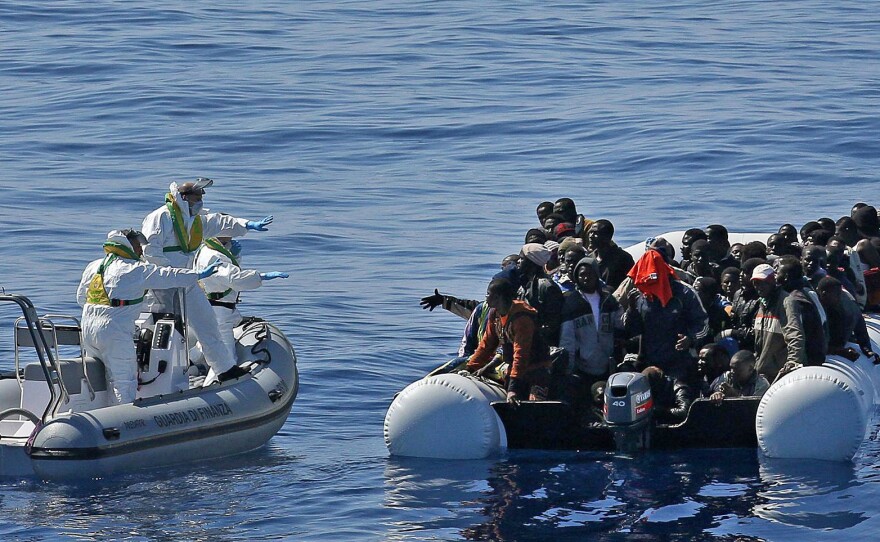The European Union appears close to agreement to step up efforts to rescue migrants trying to reach EU countries by crossing the Mediterranean and to capture or destroy human traffickers' vessels, a move that comes days after as many as 900 drowned in a capsize off the Libyan coast.
The Associated Press reports that a draft statement among leaders of the 28 EU nations would "increase search and rescue possibilities" and "undertake systematic efforts to identify, capture and destroy" traffickers' vessels before they are used in human smuggling.
"We will take action now. Europe is declaring war on smugglers," the EU's top migration official, Dimitris Avramopoulos, was quoted by the AP as saying in Malta, where he was attending the funeral of 24 migrants whose bodies were recovered after Sunday's tragedy.
AP says the draft statement also said the EU wants to "set up a first voluntary pilot project on resettlement," with at least 5,000 places for people qualifying for protection.
The BBC reports that Libya is high on the meeting's agenda, because 90 percent of would-be migrants depart from there — most heading for the Iltalian island of Lampedusa, the closest EU territory to Libya.
With the self-declared Islamic State now reportedly operating in Libya, the EU "fears [ISIS] could pose a huge security risk for Europe. In the past, it has explicitly threatened Italy," the BBC says.
As The Two-Way's Bill Chappell reported earlier this week, the EU called an emergency meeting after the latest disaster involving would-be migrants. It comes nearly two years after a similar sinking prompted calls for a re-evaluation of EU immigration policies. However, such incidents have become routine in the past few years, as migrants from Africa and the Middle East become increasingly desperate to reach Europe.
"With the best will in the world, these issues are not solvable," a senior diplomat at the EU meeting in Brussels was quoted by Reuters as saying. "We can only limit the damage."
The diplomat noted that the yawning gap in living standards between the north and south sides of the Mediterranean was the problem.
Copyright 2015 NPR. To see more, visit http://www.npr.org/.






